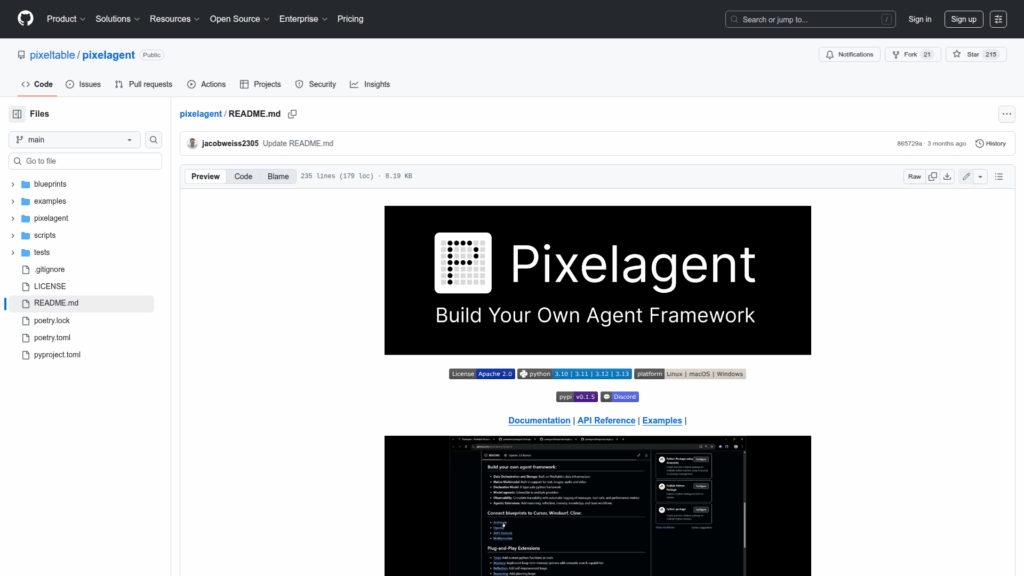pixelagent
Basic Information
Pixelagent is an agent engineering blueprint and lightweight framework for engineers to build custom, stateful agentic applications. It unifies an LLM, storage, and orchestration into a declarative, type-safe Python interface built on the Pixeltable data infrastructure. The repository provides blueprints that connect to model providers such as Anthropic, OpenAI, and AWS Bedrock as well as multiprovider setups. It emphasizes native multimodal support for text, images, audio, and video, and promotes build-your-own functionality for memory, tool-calling, reflection, reasoning, and team workflows. The project includes examples, tutorials, and recommendations for packaging agent blueprints as distributable PyPI packages. The README documents quick start code snippets showing how to instantiate agents, perform chat interactions, call tools, and persist conversational state in Pixeltable tables.








